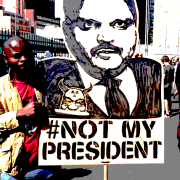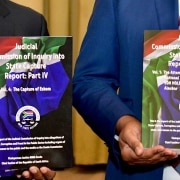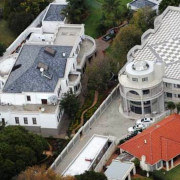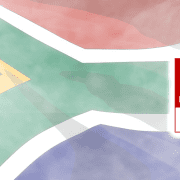|
Getting your Trinity Audio player ready...
|
News of the arrest of Atul and Rajesh Gupta in Dubai, the latest extradition arrest by authorities in the United Arab Emirates (UAE), is clearly a positive step forward in that country’s fight against corruption, and in South Africa’s search for accountability for state capture, says Corruption Watch.
The central role played by the Gupta family in contravening processes and laws around procurement and governance was made clear in evidence that emerged from the recently concluded Judicial Commission of Inquiry into Allegations of State Capture, known as the Zondo Commission.
Atul and Rajesh are fugitives of the law and have been indicted in South Africa. Their brother Ajay has not been indicted and as such, has not been taken into custody.
These arrests for money laundering and criminal charges are the result of South Africa’s appeal for mutual legal assistance from the UAE and the issuing of red notices through Interpol. It is perhaps no coincidence that the UAE is currently heading the international policing body, and has faced increasing pressure over its lax approach to money laundering and reluctance to extradite suspects.
“The arrests did not come out of the blue, but are the result of persistent efforts to institute a legal process against the brothers. While it is a significant development, it is just one step closer to ensuring that justice is done, and that the Guptas are made to face the full might of the law in this country,” said Karam Singh, executive director of Corruption Watch.
It is hoped that more arrests of senior officials and Gupta associates will follow, along with a slew of successful prosecutions. Asset recovery remains a major challenge for law enforcement seeking to reclaim the vast amounts of money laundered out of South Africa, and this will continue as an important part of the legal process in undoing the damage of state capture in the country.
“The impact of the Guptas’ illegal transactions that saw millions if not billions of rands looted from the central fiscus has been a blight on the country’s ability to overcome persistent challenges of inequality, poverty and unemployment, and has severely impeded progress in transformation and development,” concluded Singh.
For more information:
Phemelo Khaas 083 763 3472 Phemelok@corruptionwatch.org.za








